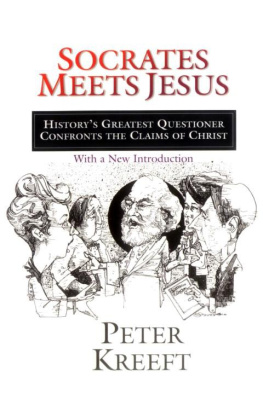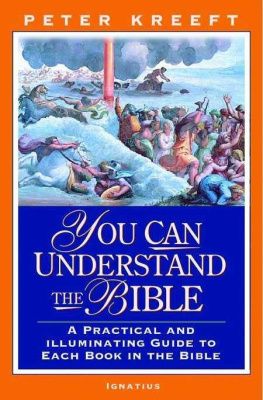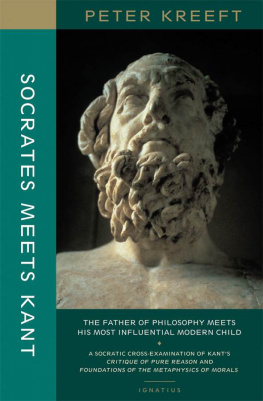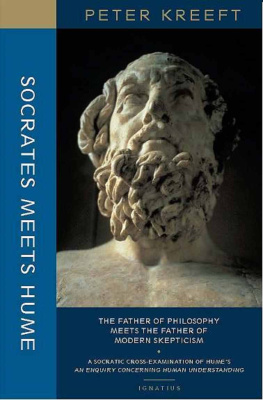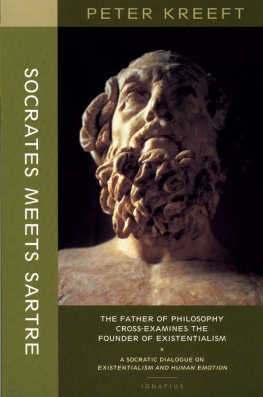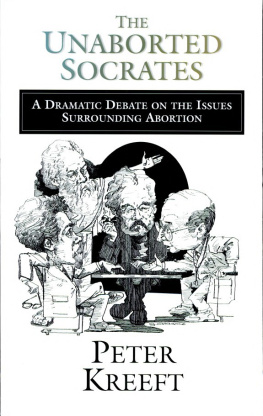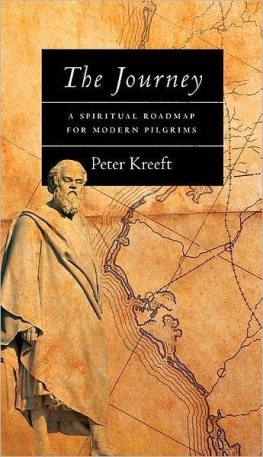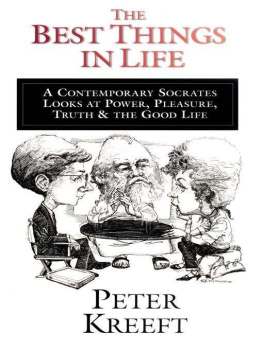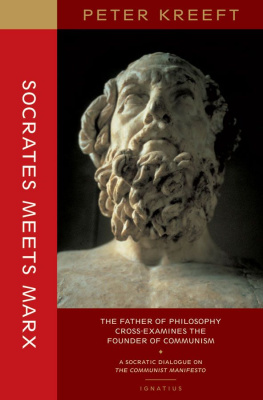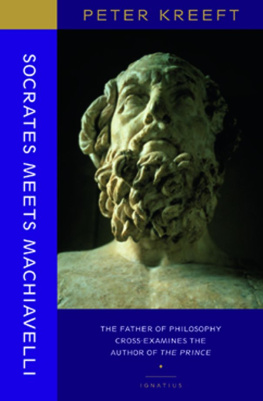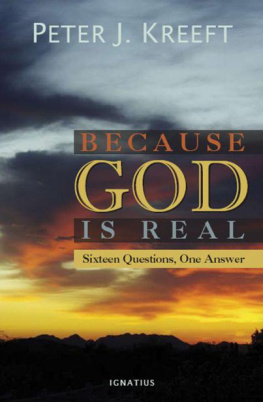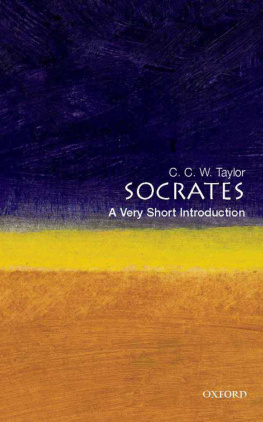Other books by Peter Kreeft
Angels & Demons
Back to Virtue
The Best Things in Life
Between Heaven & Hell
C. S. Lewis for the Third Millennium
Christianity for Modern Pagans
Everything You Always Wanted to Know About Heaven
... but Never Dreamed of Asking
Fundamentals of the Faith
The God Who Loves You
Handbook of Christian Apologetics (Ronald Tacelli, coauthor)
Heaven: The Heart's Deepest Longing
The Journey
Love Is Stronger Than Death
Making Choices
Making Sense Out of Suffering
Prayer: The Great Conversation
Prayer for Beginners
A Refutation of Moral Relativism
A Summa of the Summa
Three Philosophies of Life
The Unaborted Socrates
Yes or No?- Straight Answers to Tough Questions About Christianity
Your Questions, God's Questions
PETER KREEFT




For Terry Miethe
and Gary Habermas
The inspiration for this book came originally from two sources: chapter one of Soren Kierkegaard's Philosophical Fragments, in which he compares Jesus and Socrates as history's two greatest teachers; and Acts 17, where disciples of these two teachers interact for the first time in history.
Jesus and Socrates are surely the two most influential men who ever lived. The two main roots of Western civilization are the biblical (JudeoChristian) and the classical (Greco-Roman) cultures. As Jesus stands at the heart of the first, Socrates stands at the heart of the second. For what most obviously distinguishes our civilization-history's greatest secular success story-is technology, and technology is the offspring of science, and science is the offspring of philosophy, and philosophy is the offspring of Socrates.
Kierkegaard, who said that every single work he ever wrote was about just one thing: what it means to be(come) a Christian (the point of view for my work as an author), saw Socrates as the ideal touchstone for Jesus. How could one go beyond Socrates? How could there be an alternative to his passionately honest search for truth by the humble method of questioning? Could Truth possibly search for us instead? Might Truth come into us from without rather than from within? Kierkegaard developed this "thought experiment" by adopting the point of view of the Socratic philosopher, point by point, and then contrasting the teaching of Jesus with that of Socrates point by point in "A Project of Thought," chapter one of Philosophical Fragments. It is the most illuminating comparison I know between the two greatest men in history. When I read it I thought, It can't just sit there; it needs to make babies.
The other source for this book records one of the most fateful meetings in history: the first encounter between a disciple of Jesus and the disciples of Socrates. The dramatic account of that day that changed the world can be found in the New Testament:
Now while Paul was waiting for them at Athens, his spirit was provoked within him as he saw that the city was full of idols. So he argued in the synagogue with the Jews and the devout persons, and in the market place every day with those who chanced to be there. Some also of the Epicurean and Stoic philosophers met him. And some said, "What would this babbler say?" Others said, "He seems to be a preacher of foreign divinities"because he preached Jesus and the resurrection. And they took hold of him and brought him to the Areopagus, saying, "May we know what this new teaching is which you present? For you bring some strange things to our ears; we wish to know therefore what these things mean." Now all the Athenians and the foreigners who lived there spent their time in nothing except telling or hearing something new.
So Paul, standing in the middle of the Areopagus, said: "Men of Athens, I perceive that in every way you are very religious. For as I passed along, and observed the objects of your worship, I found also an altar with this inscription, 'To an unknown god.' What therefore you worship as unknown, this I proclaim to you." (Acts 17:16-23)
St. Paul, in the very center of worldwide idolatry, finds worshipers of the true God and says so: "What you are worshiping (present progressive tense) as unknown, this I proclaim to you." How could this be? They must have been disciples of Socrates.
Socrates was a stonecutter and may have literally cut the inscription Paul referred to. Certainly "the unknown god" was Socrates' God-in fact, Socrates was a martyr for this God. That is clear from the Apology, Socrates' great speech in defense of his life and vocation of philosophy, "the love of wisdom" (a vocation whose origin he always ascribed to "the God"), when Athens put both him and his vocation of philosophy on trial. If Socrates had only been able to confess truly and honestly the name of a single god recognized by Athens at his trial, he would not have been executed for atheism. But he could not. He did not know who the true God was, but he knew who the true God was not. And Socrates could no more betray truth than a Christian saint could betray Christ. He knew one thing: whoever the true God was, he was the God of truth.
Four centuries after Socrates died, a man lived who claimed to be this true God become human flesh, the Creator become a creature, the Father's only begotten Son, the eternal Word (Logos, Mind, Reason) of God. This man, who claimed to be the Truth (John 14:6), promised that all who seek will find (Matthew 7:8; Luke 11:10). He obviously was not talking about finding power or money or worldly success. Those were the goals that possessed the hearts of those who did not recognize him as their Messiah and Savior because he did not save them from these enemies or from the Romans. When he said that all who seek find, he was talking about truth. For he promised that "the truth will make you free" (John 8:32). He was also talking about himself, for he then said, "If the Son makes you free, you will be free indeed" (John 8:36). If Jesus is the Truth, and if Socrates sought the truth with his whole heart (which, of course, God alone can know), and if Truth cannot lie, and if Truth promised that all who seek him will find him, then we have every reason to hope that Socrates found him. We cannot be certain about Socrates, but we can be certain about Christ.

